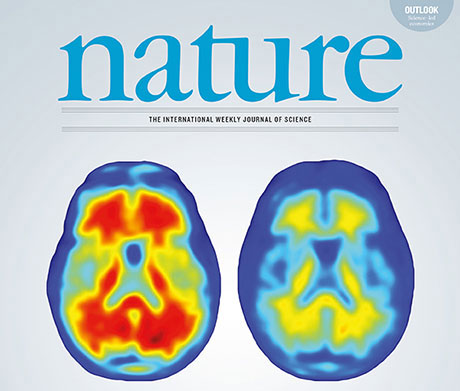-
Tips for becoming a good boxer - November 6, 2020
-
7 expert tips for making your hens night a memorable one - November 6, 2020
-
5 reasons to host your Christmas party on a cruise boat - November 6, 2020
-
What to do when you’re charged with a crime - November 6, 2020
-
Should you get one or multiple dogs? Here’s all you need to know - November 3, 2020
-
A Guide: How to Build Your Very Own Magic Mirror - February 14, 2019
-
Our Top Inspirational Baseball Stars - November 24, 2018
-
Five Tech Tools That Will Help You Turn Your Blog into a Business - November 24, 2018
-
How to Indulge on Vacation without Expanding Your Waist - November 9, 2018
-
5 Strategies for Businesses to Appeal to Today’s Increasingly Mobile-Crazed Customers - November 9, 2018
Alzheimer’s drug study gives ‘tantalising’ results
In the trial, the strongest glimpse of mental improvement was seen in patients who had the highest dose of drug and who showed the greatest reduction in amyloid plaque proteins in follow-up brain scans. But finally, during a study on this disease done by the teams from Victoria University of Wellington and University of Liverpool, the researchers have discovered a new drug that can prevent Alzheimer in its early stage. Researchers have now been able to show that Aducanumab, a human monoclonal antibody, selectively binds brain amyloid plaques, thus enabling microglial cells to remove the plaques.
Advertisement
Alfred Sandrock, senior author of the paper from Massachusetts-based Biogen said that all of the researchers are pretty sure that aducanumab will work efficiently on the patients suffering from amyloid plaques and in some ways help them to recover their loss memory.
Aducanumab also showed positive effects on clinical symptoms the cognitive abilities and everyday activities of the patients.
Aducanumab is now being investigated in the ongoing PRIME study, a randomized, double-blind, placebo-controlled, multiple-dose Phase 1b trial evaluating the safety, tolerability, pharmacokinetics (PK), pharmacodynamics (PD) and clinical effects of aducanumab in patients with prodromal or mild AD.
Aducanumab is a human recombinant monoclonal antibody derived from a library of B cells collected from healthy elderly subjects with no indications of cognitive impairment. Although not initially planned as a primary study objective, the good results encouraged researchers to additionally investigate how the treatment affected the symptoms of disease.
Advertisement
The next phase of research – the third – will involve a North America trial with 2700 early-onset Alzheimers patients.





























